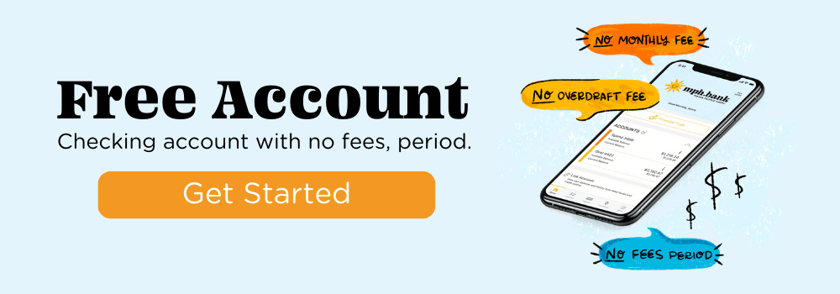“The best investment you can make is in yourself.” — Warren Buffett
If you’re out of college and still feel like you’re dragging a ball and chain of debt behind you—welcome to the club. Roughly 43 million Americans carry federal student loan debt. And let’s be real: it’s exhausting. You graduate, flip the tassel, and step into the “real world” only to find yourself asking, What now?
It’s no longer just about paying off loans. It’s about building something.
A life. A future. A little financial breathing room.
But here’s the problem—most personal finance advice stops at "pay off your student loans" and leaves you hanging when it's time to grow. That’s where The College Investor steps in. This isn’t just another website telling you to budget harder or stop buying lattes (yawn). It’s a launchpad. A toolkit. A mindset shift.
You’re not just someone with student debt anymore. You’re someone ready to invest in yourself—your future, your income, your independence.
In this post, we’ll walk through how The College Investor helps you grow past student loans, whether that’s through building passive income, investing wisely, picking up side hustles, optimizing taxes, or understanding how to actually build wealth (without a finance degree).
Let’s crack this open.
1. First, Face the Debt — Then Move Past It
Let’s get this out of the way: Yes, The College Investor offers fantastic resources for tackling student debt.
You’ll find guides on:
- Student loan forgiveness programs (federal, state, even career-based).
- Repayment strategies (including whether refinancing makes sense).
- Income-Driven Repayment Plans (explained without the jargon).
- Loan servicer reviews and watchdog alerts to avoid shady practices.
But here’s what makes it different: debt isn’t the end of the conversation. It’s just the starting line.
Once you've got a plan—or at least an understanding of what you owe and how you're handling it—it's time to shift your mindset from survival to growth.
2. Investing 101: Built for Beginners, Not Wall Street Bros
When you hear "investing," what comes to mind?
Complicated charts? Wall Street jargon? Risky crypto plays?
Nope. Not here.
The College Investor meets you exactly where you are—maybe you’ve never bought a stock, or maybe you have a 401(k) and don’t know what’s inside it. Either way, this site strips away the intimidation.
You’ll find:
- Beginner-friendly guides to stocks, index funds, and ETFs.
- Step-by-step tutorials on opening your first brokerage account.
- Breakdowns of robo-advisors like Betterment or Wealthfront vs. DIY investing.
- Best investing apps for beginners, ranked and reviewed.
- Tax-advantaged strategies (like Roth IRAs or HSAs) explained in plain English.
And here's the key: this isn't just theoretical. The College Investor gives actionable steps. You walk away knowing exactly what to do next.
Want to get started with investing while still paying off debt? They’ll show you how to do both.
3. Side Hustles: From Survival Mode to Thriving
Raise your hand if you’ve Googled “how to make money online.”
Yeah, same.
The College Investor curates and vets hundreds of ways to make money outside your 9–5. Not all side hustles are created equal—and they don’t all require you to start a blog or become a TikTok influencer.
Some real options they break down:
- Freelancing (writing, design, marketing, coding)
- Online tutoring (and the platforms that actually pay fairly)
- Driving gigs like DoorDash or UberEats—with honest ROI breakdowns
- Renting out stuff—think storage space, cars, even your driveway
- Flipping and reselling on eBay or Facebook Marketplace
- Starting a small online business, including passive income ideas like digital downloads or print-on-demand
Each hustle is explained clearly, with pros, cons, expected earnings, and time commitment.
What sets it apart? There’s zero fluff. If a side hustle isn’t worth your time, they’ll say it.
4. Passive Income: The Long Game
Active income is great—but passive income? That’s the dream.
The College Investor doesn't sell you fantasies. Instead, they offer real frameworks for building long-term income streams. Things that might take work upfront but can snowball over time.
Examples include:
- Dividend investing—what it is, how to start, and why consistency is key
- Real estate investing—including REITs, house hacking, and platforms like Fundrise
- Creating digital assets—ebooks, courses, templates, music, and more
- Investing in yourself—certifications and skills that lead to higher income over time
This is where The College Investor shines. It helps you zoom out and think bigger.
You’re not just climbing out of debt. You’re building wealth.
5. Taxes: The Wealth Builder Most People Ignore
Nobody likes taxes. But understanding them? That’s powerful.
The College Investor teaches you how to optimize, not evade. And how to take full advantage of legal opportunities that put money back in your pocket.
Topics they cover include:
- How student loan interest can still help you come tax season
- The best deductions for side hustlers and freelancers
- Which investments offer tax advantages
- How to make tax-loss harvesting work for you
- What retirement accounts lower your taxable income
You’ll also find practical guides for choosing tax software, understanding new tax laws, and what to do if you’re hit with a surprise bill.
Bottom line: You don’t need to fear taxes—you just need to get smarter about them. The College Investor helps you do that.
6. Real Stories, Real People, Real Progress
One of the best parts of The College Investor? It’s not faceless. It’s built by real people, telling real stories.
You’ll read case studies like:
- How one person paid off $90k in loans and then built a six-figure investment portfolio by age 35.
- How another used side hustles to leave a job they hated and go full-time freelance.
- How someone else refinanced their loans, cut their payment in half, and put the extra cash into a Roth IRA.
These stories are more than inspiring—they’re practical. They show you the blueprint.
You don’t need a six-figure income. You need a plan, patience, and consistency.
7. Financial Tools That Don’t Suck
Most finance tools are either boring or overcomplicated. The College Investor cuts through the noise and recommends the tools that actually work.
Their reviews and comparisons cover:
- Budgeting apps like YNAB, Mint, and Monarch
- Brokerage platforms for all levels—from Robinhood to Fidelity
- Credit score monitoring tools
- Tax software comparisons, ranked by usability and price
- Student loan refinancing platforms with the best rates (and real user experiences)
They don’t just list features—they explain who each tool is right for.
8. Financial Independence: From Awareness to Action
The College Investor is secretly an FIRE gateway drug (Financial Independence, Retire Early). But it’s FIRE for the rest of us.
No Silicon Valley salary required.
Instead of promising early retirement in five years, it gives you practical ways to:
- Increase your savings rate even on a moderate income
- Make smart investment decisions with long-term payoff
- Align your spending with your values
- Avoid debt traps
- Create systems so your money works even when you’re not
If financial freedom sounds far away, this site helps you inch closer every month—with actual results, not just buzzwords.
9. Community, Updates, and Staying in the Game
Here’s the truth: financial growth is a marathon, not a sprint.
And you’ll want a reliable guide, especially when things change—new tax laws, student loan policy updates, market shifts.
The College Investor keeps their content updated and relevant. And their community—through email newsletters, podcasts, and social media—is a solid way to stay connected, stay motivated, and stay informed.
Because what works in 2022 may not work in 2025. And they know that.
Don’t Just Pay Off Debt—Build a Life
Student loans might’ve started your financial journey. But they don’t have to define it.
The College Investor is more than a resource—it’s a mindset. A modern take on what it means to invest in yourself, your time, your skills, and your future. Whether you're in your 20s, 30s, or beyond, this platform offers something few others do:
📌 A full-picture plan—not just debt payoff advice
📌 A toolkit for real income growth
📌 Simple, honest guidance without condescension or hype
This isn’t about getting rich quick. It’s about getting free—one step at a time.
So, what’s your next move?
Are you refinancing a loan? Opening your first brokerage account? Starting a side hustle you’ve been thinking about for months?
Whatever it is, start small. But start.
Why did the little boy eat his cash?
It was his dinner money! Sign up to receive important information on banking, financial tips, and jokes like this directly to your inbox










